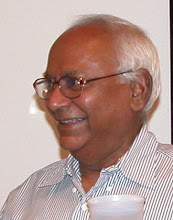In the previous posts on this Blog, it has been discussed how democracy has been an illusion, both at the top as well as at the grass roots of governance in India, how secularism has been negated in the practice of politics for pursuit of power, how sovereignty of people of India is far from a reality, how socialism has been formally forsaken by India and how India is far from being a true or ideal republic. Thus, the declaration made in the Constitution in its Preamble of India being a “Sovereign Socialist Secular Democratic Republic” remains a pious wish rather than a reality of life and living in contemporary India. In fact, India has diverged more and more from the path envisioned in the Constitution over almost six decades of its republican journey. Alongwith this divergence in basic constitutional values, other concomitant values have also progressively deteriorated in India. Among these, the most pervasive and intense is the cankerous growth of corruption in the Indian republic, so much so that it has evolved as a culture of its public life. Growth of this culture in public life is quite at variance with that in personal and social life in contemporary India, or what may be called the core culture of India evolved over centuries and millenniums of its national life.
Obviously then the cause of corruption and its growth is inherent in the operative part of our Constitution, i.e. the system of governance adopted. As this system remained essentially the same as was used for colonial administration of British India, the corruption that prevailed in that administration in a systematic and established manner, particularly at lower levels, continued unabated in free India. With the Constitution, which retained the same system of governance, coming into force on 26 January 1950, corruption became more pervasive and it spread to higher levels at accelerated pace. The Mundhra scandal, which involved the then Finance Minister was brought to notice on the floor of the parliament in the fifties just serves as an example of corruption at the highest levels even in the initial years of Indian republic. In those years, however, the political morality was still at high level. The case was promptly and transparently investigated by a judge of impeccable reputation and upon establishment of the charge, guilty officials were punished and the Finance Minister had to resign. In later years and decades, cases of corruptions at high levels, scams and scandals came to light with increasing frequency, each dwarfing the previous ones in magnitude, pervasiness and turpitude of political morality. The latest major scandal which came to light 10 days ago relates to a scandal involving embezzlement of public funds, illegal laundering of black money as well as depositing and investing in foreign countries to the true of more than 50 billion rupees. The king pin of this scandal had been a minister and then Chief Minister for only a few years of a newly created mineral-rich poor state. The story of his rise to being a minister or the Chief Minister in spite of being an independent member of the State Legislature makes an interesting reading in democratic functioning in contemporary India. It demonstrates how all tenets of right political behaviour and ethics are blatantly thrown to the winds in order to capture and retain power, directly or by proxy, and how contemptible and obnoxious maneuvers are done by political parties to have a pliable government of choice and convenience.
While talking of major scams and scandals involving political leaders in power, one must not forget that corruption is not confined only to the political levels. Far from it. Corruption is rampant in various measures at all levels of governance in India, from political to bureaucratic down to the lowest ones.
There is one qualitative difference between the scandals and corruption in the earlier years after independence when the first generation post-independence political leaders were still there at the helm of affairs, and now. Then, while the system of governance was prone to and promotive of corruption, people entered the profession of politics with a sense of service and the system still operated under certain norms and canons set by the British administration. Now, the morality of the political profession has tremendously fallen and the whole system of governance has commensurately degenerated. Then, people from the grass roots took to politics inspired by a sense of service to the nation, and political wrong doers were a rather scarce commodity. Now, 56% of the MPs in the 15th Lok Sabha belong to upper less than 0.1% of the Indian people and about 30% of them have criminal records. Increase in the extent and magnitude of corruption and fall of the political morality and criminalization of politics in India have gone hand in hand. This progression, however, has been happening not with constant speed but rather with acceleration.
The inference is inescapable and obvious. This Indian phenomenon is not specific to political parties or people as politicians per se. It is rather systemic and the system is obviously the system of colonial governance that was chosen and adopted to govern a free nation aspiring to become a sovereign, socialist, secular, democratic republic.
Monday, November 9, 2009
Culture of Corruption in Public Life in Contemporary India
Subscribe to:
Post Comments (Atom)

No comments:
Post a Comment
Note: Only a member of this blog may post a comment.